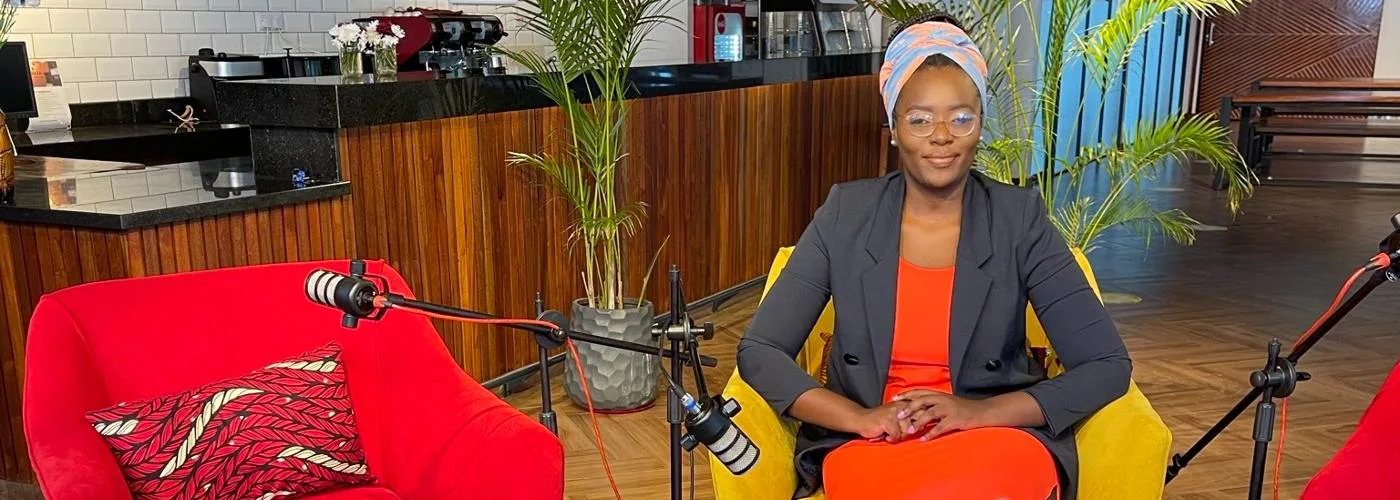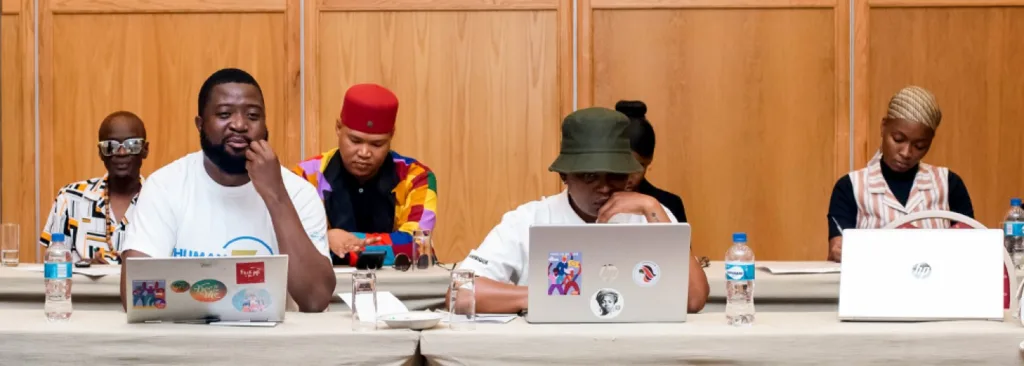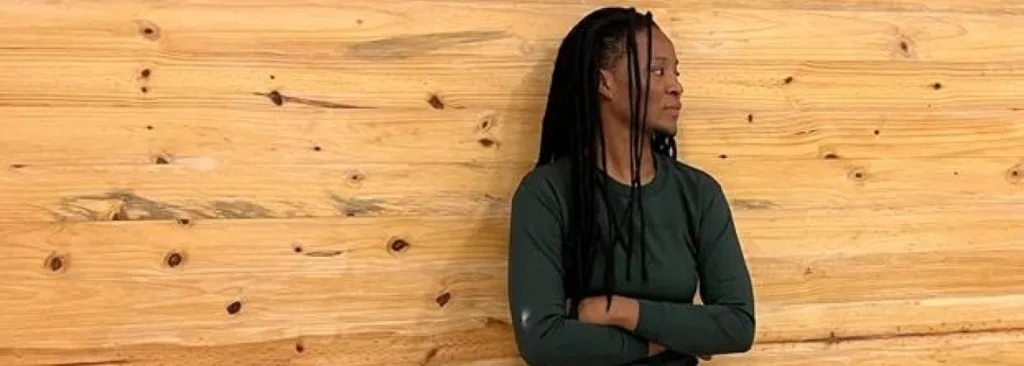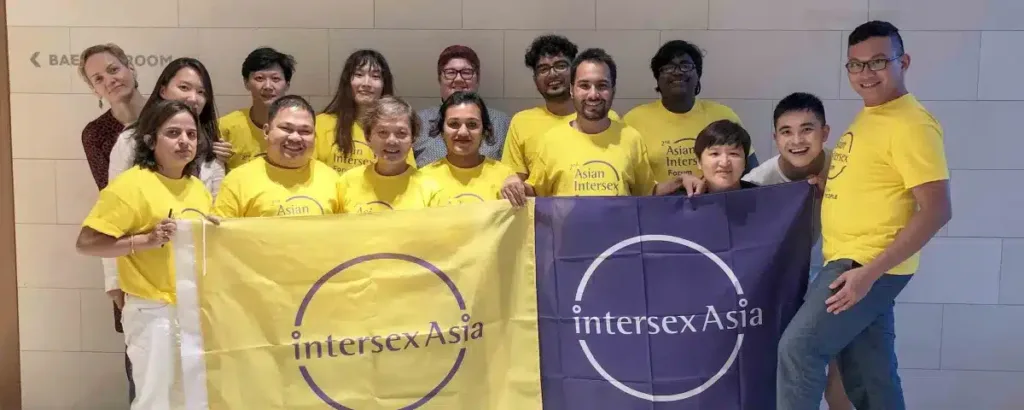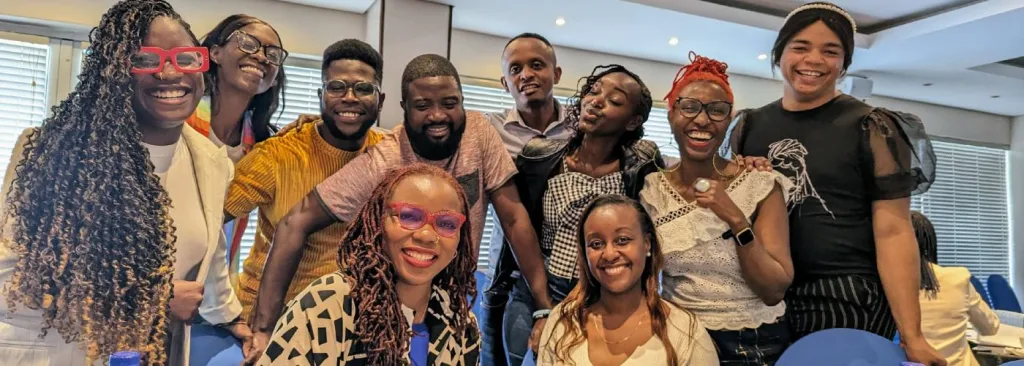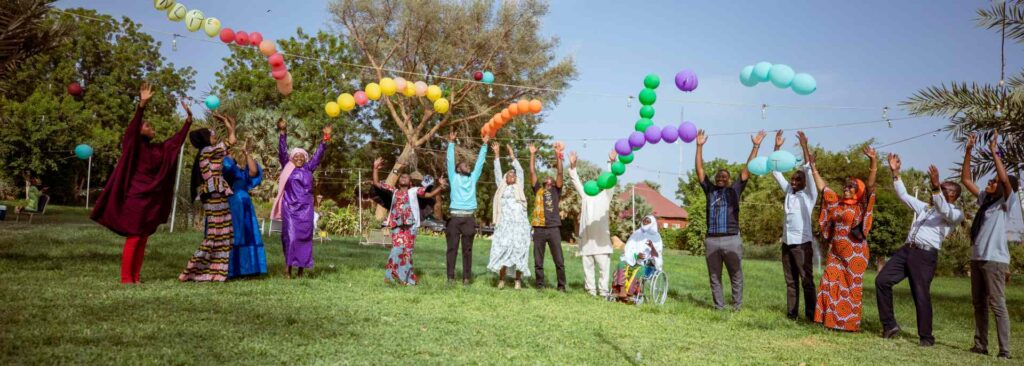In Kenya, a deeply religious country, many churches disapprove of sexual and gender diversity. Feminists in Kenya is a movement that, with support from our Voice program, helps LGBTIQ+ people convince religious leaders to stand up for their rights. This way they can tackle homophobic prejudice from within religious communities.
As the movement’s name suggests, Feminists in Kenya also stands up for women’s rights. “We share knowledge about feminism, fight against gender-based violence and promote sexual and reproductive health and rights,” says Vivian Ouya, one of the founders. “We have about 30 members, including queer people. We often talk about how we can be feminist, queer and religious, how we can unite these different identities. This is how our idea for the ‘God loves LGBTIQ’ project was born.”
The aim of the project is to create space for LGBTIQ+ people to explore the relationships between faith, feminism and freedom. “This way they can enter into conversations with each other and with the religious community,” Vivian explains. “What is it like to be queer and religious, or queer and non-religious in deeply religious Kenya? What prejudices and stigmas do queer people face? And where is there room for improvement?”
Queers cannot freely express themselves about how they experience religion, especially on digital platforms.
Conversion practices
Kenya and religion are inextricably linked, and a very high percentage of the inhabitants are Christian. “It’s part and parcel of our everyday lives,” says Vivian. “For example, Kenyan meetings always start with a prayer. And non-believers are severely condemned.”
Queer people are not accepted either. “Churches preach that God disapproves if you belong to the LGBTIQ+ community. They quote discriminatory scriptures and use slogans like ‘God created Adam and Eve, not Adam and Steve.’ Queers cannot freely express themselves about how they experience religion, especially on digital platforms. If someone finds out they’re queer, they tell their family, who then ostracizes them.”
In Kenya, many religious queers struggle with feelings of guilt. They feel like they have abandoned their parents and community and are disobeying God’s will. “Conversion therapy, which trys to change the sexual orientation of queer people, is a common practice. But it’s really harmful to their psychological health,” explains Vivian.
Podcasts and workshops
The God loves LGBTIQ project has been very busy over the last one and a half years. “We’ve created eight podcast episodes that feature both religious and non-believing LGBTIQ+ people. We’ve also organized workshops where queer people converse with believers in their community to try and tackle homophobia in the church,” Vivian tells us.
The workshops were led by a pastor. “Religious people tend to accept more from a religious leader,” says Vivian. “He called for respect for everyone’s opinion during the workshop and said there was no room for hostility or violence. To bring people closer together, he used Bible verses that everyone could identify with.”
“We are also developing a toolkit to help queer activists defend their interests in churches and communities in a fun and creative way. For example, they can ask progressive religious leaders to lead discussions based on the toolkit.”
Vivian has already noticed the impact the project is having. “As a result of our workshops with religious leaders, we’re seeing a gradual shift in the mindset of the religious participants. They are willing to learn from us. But real change takes time. That’s why we’re continuing to develop programs that help us make headway.”
Too long on the sidelines
What does Vivian ultimately hope to achieve with her work? “Women in Africa have always suffered from discrimination, even more so if they are also queer or have a disability, for example. We’ve been on the sidelines for too long. I do this work to place African women center stage because our government has failed them so far. We will continue to stand up for the rights and position of women and LGBTIQ+ people now and in the future.”
About Voice
Voice is an innovative grant facility executed by a consortium between Oxfam Novib and Hivos. It supports rightsholders and groups facing marginalization or discrimination in their efforts to express their views and demand their right to responsive and inclusive societies. Specifically: people with disability; LGBTIQ+ people; women facing exploitation, abuse or violence; vulnerable elderly and the youth; Indigenous people, and ethnic minorities.

